OVERCAME POEMS
This page is specially prepared for overcame poems. You can reach newest and popular overcame poems from this page. You can vote and comment on the overcame poems you read.
Snake
A snake came to my water-trough
On a hot, hot day, and I in pyjamas for the heat,
To drink there.
In the deep, strange-scented shade of the great dark carob-tree
.....
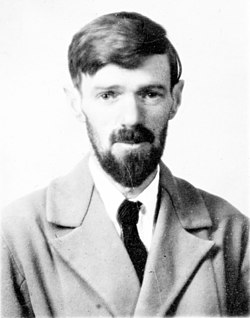
D. H. Lawrence
A snake came to my water-trough
On a hot, hot day, and I in pyjamas for the heat,
To drink there.
In the deep, strange-scented shade of the great dark carob-tree
.....

D. H. Lawrence
Sonnet 26 - I Lived With Visions For My Company
XXVI
I lived with visions for my company
Instead of men and women, years ago,
.....
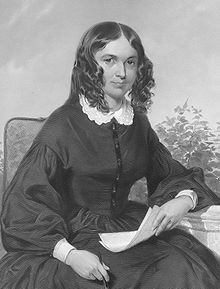
Elizabeth Barrett Browning
XXVI
I lived with visions for my company
Instead of men and women, years ago,
.....

Elizabeth Barrett Browning
The Iliad: Book 23
Thus did they make their moan throughout the city, while the
Achaeans when they reached the Hellespont went back every man to his
own ship. But Achilles would not let the Myrmidons go, and spoke to
his brave comrades saying, “Myrmidons, famed horsemen and my own
.....
Homer
Thus did they make their moan throughout the city, while the
Achaeans when they reached the Hellespont went back every man to his
own ship. But Achilles would not let the Myrmidons go, and spoke to
his brave comrades saying, “Myrmidons, famed horsemen and my own
.....
Homer
Hyperion: Book Ii
Just at the self-same beat of Time's wide wings
Hyperion slid into the rustled air,
And Saturn gain'd with Thea that sad place
Where Cybele and the bruised Titans mourn'd.
.....
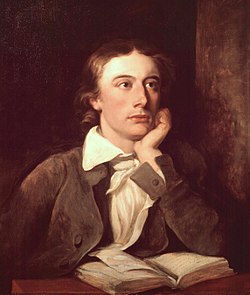
John Keats
Just at the self-same beat of Time's wide wings
Hyperion slid into the rustled air,
And Saturn gain'd with Thea that sad place
Where Cybele and the bruised Titans mourn'd.
.....

John Keats
Calthon And Colmal
This piece, as many more of Ossian's compositions, is addressed to one of the first Christian missionaries. The story of the poem is handed down by tradition thus:- In the country of the Britons, between the walls, two chiefs lived in the days of Fingal, Dunthalmo, Lord of Teutha, supposed to be the Tweed; and Rathmor, who dwelt at Clutha, well known to be the river Clyde. Rathmor was not more renowned for his generosity and hospitality, than Dunthalmo was infamous for his cruelty and ambition. Dunthalmo, through envy, or on account of some private feuds, which subsisted between the families, murdered Rathmor at a feast; but being afterward touched with remorse, he educated the two sons of Rathmor, Calthon and Colmar, in his own house. They growing up to man's estate, dropped some hints that they intended to revenge the death of their father, upon which Dunthalmo shut them up in two caves, on the banks of Teutha, intending to take them off privately. Colmal, the daughter of Dunthalmo, who was secretly in love with Calthon, helped him to make his escape from prison, and hied with him to Fingal, disguised in the habit of a young warrior, and implored his aid against Dunthalmo. Fingal sent Ossian with three hundred men to Colmar's relief. Dunthalmo, having previously murdered Colmar, came to a battle with Ossian, but he was killed by that hero, and his army totally defeated. Calthon married Colmal his deliverer; and Ossian returned to Morven.
Pleasant is the voice of thy song, thou lonely dweller of the rock! It comes on the sound of the stream, along the narrow vale. My soul awakes, O stranger, in the midst of my hall. I stretch my hand to the spear, as in the days of other years. I stretch my hand, but it is feeble: and the sigh of my bosom grows. Wilt thou not listen, son of the rock! to the song of Ossian? My soul is full of other times; the joy of my youth returns. Thus the sun appears in the west, after the steps of his brightness have moved behind a storm: the green hills lift their dewy heads: the blue streams rejoice in the vale. The aged hero comes forth on his stair; his gray hair glitters in the beam. Dost thou not behold, son of the rock! a shield in Ossian's hall? It is marked with the strokes of battle; and the brightness of its bosses has failed. That shield the great Dunthalmo bore, the chief of streamy Teutha. Dunthalmo bore it in battle before he fell by Ossian's spear. Listen, son of the rock! to the tale of other years.
.....
James Macpherson
This piece, as many more of Ossian's compositions, is addressed to one of the first Christian missionaries. The story of the poem is handed down by tradition thus:- In the country of the Britons, between the walls, two chiefs lived in the days of Fingal, Dunthalmo, Lord of Teutha, supposed to be the Tweed; and Rathmor, who dwelt at Clutha, well known to be the river Clyde. Rathmor was not more renowned for his generosity and hospitality, than Dunthalmo was infamous for his cruelty and ambition. Dunthalmo, through envy, or on account of some private feuds, which subsisted between the families, murdered Rathmor at a feast; but being afterward touched with remorse, he educated the two sons of Rathmor, Calthon and Colmar, in his own house. They growing up to man's estate, dropped some hints that they intended to revenge the death of their father, upon which Dunthalmo shut them up in two caves, on the banks of Teutha, intending to take them off privately. Colmal, the daughter of Dunthalmo, who was secretly in love with Calthon, helped him to make his escape from prison, and hied with him to Fingal, disguised in the habit of a young warrior, and implored his aid against Dunthalmo. Fingal sent Ossian with three hundred men to Colmar's relief. Dunthalmo, having previously murdered Colmar, came to a battle with Ossian, but he was killed by that hero, and his army totally defeated. Calthon married Colmal his deliverer; and Ossian returned to Morven.
Pleasant is the voice of thy song, thou lonely dweller of the rock! It comes on the sound of the stream, along the narrow vale. My soul awakes, O stranger, in the midst of my hall. I stretch my hand to the spear, as in the days of other years. I stretch my hand, but it is feeble: and the sigh of my bosom grows. Wilt thou not listen, son of the rock! to the song of Ossian? My soul is full of other times; the joy of my youth returns. Thus the sun appears in the west, after the steps of his brightness have moved behind a storm: the green hills lift their dewy heads: the blue streams rejoice in the vale. The aged hero comes forth on his stair; his gray hair glitters in the beam. Dost thou not behold, son of the rock! a shield in Ossian's hall? It is marked with the strokes of battle; and the brightness of its bosses has failed. That shield the great Dunthalmo bore, the chief of streamy Teutha. Dunthalmo bore it in battle before he fell by Ossian's spear. Listen, son of the rock! to the tale of other years.
.....
James Macpherson
Hawker, The Standard Bearer
The grey gull sat on a floating whale,
On a floating whale sat he,
And he told his tale of the storm and the gale,
And the ships that he saw with steam and sail,
.....
Banjo Paterson
The grey gull sat on a floating whale,
On a floating whale sat he,
And he told his tale of the storm and the gale,
And the ships that he saw with steam and sail,
.....
Banjo Paterson
Godiva
I waited for the train at Coventry;
I hung with grooms and porters on the bridge,
To match the three tall spires; and there I shaped
The city's ancient legend into this:--
.....
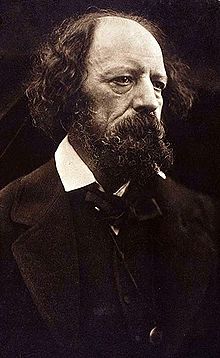
Alfred Lord Tennyson
I waited for the train at Coventry;
I hung with grooms and porters on the bridge,
To match the three tall spires; and there I shaped
The city's ancient legend into this:--
.....

Alfred Lord Tennyson
The Dream Of Man
To the eye and the ear of the Dreamer
This Dream out of darkness flew,
Through the horn or the ivory portal,
But he wist not which of the two.
.....
William Watson
To the eye and the ear of the Dreamer
This Dream out of darkness flew,
Through the horn or the ivory portal,
But he wist not which of the two.
.....
William Watson
The Egyptian Maid
While Merlin paced the Cornish sands,
Forth-looking toward the rocks of Scilly,
The pleased Enchanter was aware
Of a bright Ship that seemed to hang in air,
.....
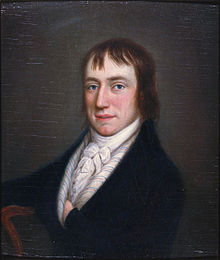
William Wordsworth
While Merlin paced the Cornish sands,
Forth-looking toward the rocks of Scilly,
The pleased Enchanter was aware
Of a bright Ship that seemed to hang in air,
.....

William Wordsworth
The Romance Of The Water Lily
While Merlin paced the Cornish sands,
Forth-looking toward the rocks of Scilly,
The pleased Enchanter was aware
Of a bright Ship that seemed to hang in air,
.....

William Wordsworth
While Merlin paced the Cornish sands,
Forth-looking toward the rocks of Scilly,
The pleased Enchanter was aware
Of a bright Ship that seemed to hang in air,
.....

William Wordsworth
Of Tribulation, These Are They
325
Of Tribulation, these are They,
Denoted by the White-
.....
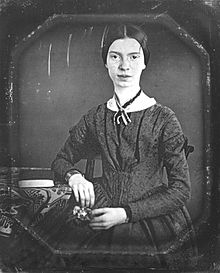
Emily Dickinson
325
Of Tribulation, these are They,
Denoted by the White-
.....

Emily Dickinson
Paradise Regained: The First Book
I, who erewhile the happy Garden sung
By one man's disobedience lost, now sing
Recovered Paradise to all mankind,
By one man's firm obedience fully tried
.....
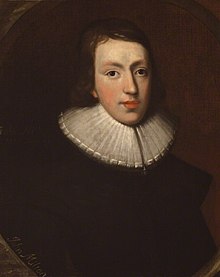
John Milton
I, who erewhile the happy Garden sung
By one man's disobedience lost, now sing
Recovered Paradise to all mankind,
By one man's firm obedience fully tried
.....

John Milton
Thomas Ross, Jr.
This I saw with my own eyes:
A cliff-swallow
Made her nest in a hole of the high clay-bank
There near Miller's Ford.
.....
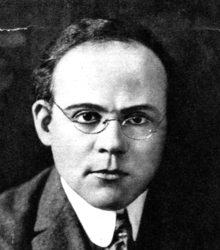
Edgar Lee Masters
This I saw with my own eyes:
A cliff-swallow
Made her nest in a hole of the high clay-bank
There near Miller's Ford.
.....

Edgar Lee Masters
Within And Without: A Dramatic Poem: Part I
Go thou into thy closet; shut thy door;
And pray to Him in secret: He will hear.
But think not thou, by one wild bound, to clear
The numberless ascensions, more and more,
.....
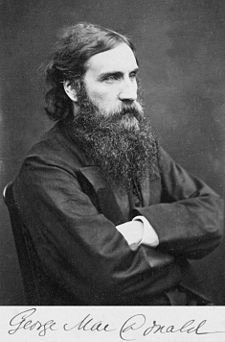
George Macdonald
Go thou into thy closet; shut thy door;
And pray to Him in secret: He will hear.
But think not thou, by one wild bound, to clear
The numberless ascensions, more and more,
.....

George Macdonald
Within And Without: A Dramatic Poem: Part Iii
And weep not, though the Beautiful decay
Within thy heart, as daily in thine eyes;
Thy heart must have its autumn, its pale skies,
Leading, mayhap, to winter's dim dismay.
.....

George Macdonald
And weep not, though the Beautiful decay
Within thy heart, as daily in thine eyes;
Thy heart must have its autumn, its pale skies,
Leading, mayhap, to winter's dim dismay.
.....

George Macdonald
Vidrik Verlandson (from The Old Danish)
King Diderik sits in the halls of Bern,
And he boasts of his deeds of might;
So many a swain in battle he's fell'd,
And taken so many a knight.
.....
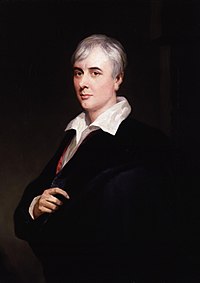
George Borrow
King Diderik sits in the halls of Bern,
And he boasts of his deeds of might;
So many a swain in battle he's fell'd,
And taken so many a knight.
.....

George Borrow
Man Of The House
It was a misunderstanding.
I got into bed, made love
with the woman I found there,
called her honey, mowed the lawn,
.....
Bob Hicok
It was a misunderstanding.
I got into bed, made love
with the woman I found there,
called her honey, mowed the lawn,
.....
Bob Hicok
Sonnet Xxvi
I lived with visions for my company
Instead of men and women, years ago,
And found them gentle mates, nor thought to know
A sweefer music than they played to me.
.....

Elizabeth Barrett Browning
I lived with visions for my company
Instead of men and women, years ago,
And found them gentle mates, nor thought to know
A sweefer music than they played to me.
.....

Elizabeth Barrett Browning
The Suicide
What anguish rankled 'neath that silent breast?
What spectral figures mocked those staring eyes,
Luring them on to Stygian mysteries?
What overpowering sense of grief distressed?
.....
Alfred Castner King
What anguish rankled 'neath that silent breast?
What spectral figures mocked those staring eyes,
Luring them on to Stygian mysteries?
What overpowering sense of grief distressed?
.....
Alfred Castner King
The Countersign
Alas! the weary hours pass slow,
The night is very dark and still;
And in the marshes far below
I hear the bearded whippoorwill;
.....
Anonymous Americas
Alas! the weary hours pass slow,
The night is very dark and still;
And in the marshes far below
I hear the bearded whippoorwill;
.....
Anonymous Americas
Ch 03 On The Excellence Of Contentment Story 24
A weak fisherman caught a strong fish in his net and not being able to retain it the fish overcame him and pulled the net from his hand.
A boy went to bring water from the torrent.
The torrent came and took the boy away.
.....
Saadi Shirazi
A weak fisherman caught a strong fish in his net and not being able to retain it the fish overcame him and pulled the net from his hand.
A boy went to bring water from the torrent.
The torrent came and took the boy away.
.....
Saadi Shirazi
A Ballad
With A Serious Conclusion
Crowd about me, little children--
Come and cluster 'round my knee
.....
James Whitcomb Riley
With A Serious Conclusion
Crowd about me, little children--
Come and cluster 'round my knee
.....
James Whitcomb Riley
From The Persian Of Hafiz I
Butler, fetch the ruby wine,
Which with sudden greatness fills us;
Pour for me who in my spirit
Fail in courage and performance;
.....
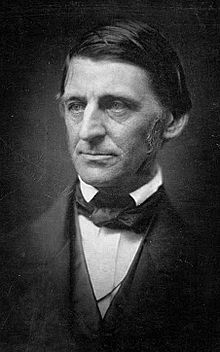
Ralph Waldo Emerson
Butler, fetch the ruby wine,
Which with sudden greatness fills us;
Pour for me who in my spirit
Fail in courage and performance;
.....

Ralph Waldo Emerson
Sonnet Xxvi: I Lived With Visions
I lived with visions for my company
Instead of men and women, years ago,
And found them gentle mates, nor thought to know
A sweeter music than they played to me.
.....

Elizabeth Barrett Browning
I lived with visions for my company
Instead of men and women, years ago,
And found them gentle mates, nor thought to know
A sweeter music than they played to me.
.....

Elizabeth Barrett Browning
Lines On Mt. Elgin
Delivered at opening of Odd-Fellows' Lodge.
Dereham now hath wealthy yoemen
Whose fathers overcame the foemen ;
.....
James Mcintyre
Delivered at opening of Odd-Fellows' Lodge.
Dereham now hath wealthy yoemen
Whose fathers overcame the foemen ;
.....
James Mcintyre
Mountain Drinking Song
To drown the ancient sorrows,
we drank a hundred jugs of wine
there in the beautiful night.
We couldn't go to bed with the moon so bright.
.....
Li Po
To drown the ancient sorrows,
we drank a hundred jugs of wine
there in the beautiful night.
We couldn't go to bed with the moon so bright.
.....
Li Po
Life In The Woods
Lines on the struggles of the early settlers.
Canada hath wealthy yeoman
Whose fathers overcame the foeman ;
.....
James Mcintyre
Lines on the struggles of the early settlers.
Canada hath wealthy yeoman
Whose fathers overcame the foeman ;
.....
James Mcintyre
German Faith
Once for the sceptre of Germany, fought with Bavarian Louis
Frederick, of Hapsburg descent, both being called to the throne.
But the envious fortune of war delivered the Austrian
Into the hands of the foe, who overcame him in fight.
.....
Friedrich Schiller
Once for the sceptre of Germany, fought with Bavarian Louis
Frederick, of Hapsburg descent, both being called to the throne.
But the envious fortune of war delivered the Austrian
Into the hands of the foe, who overcame him in fight.
.....
Friedrich Schiller
Sir William Gomm: Sonnets
I.
AT threescore years and five aroused anew
To rule in India, forth a soldier went
On whose bright-fronted youth fierce war had spent
.....
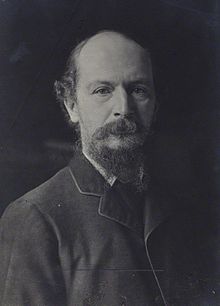
Algernon Charles Swinburne
I.
AT threescore years and five aroused anew
To rule in India, forth a soldier went
On whose bright-fronted youth fierce war had spent
.....

Algernon Charles Swinburne
Snake
A snake came to my water-trough
On a hot, hot day, and I in pyjamas for the heat,
To drink there.
In the deep, strange-scented shade of the great dark carob-tree
.....
David Herbert Lawrence
A snake came to my water-trough
On a hot, hot day, and I in pyjamas for the heat,
To drink there.
In the deep, strange-scented shade of the great dark carob-tree
.....
David Herbert Lawrence
Xxvi
I lived with visions for my company
Instead of men and women, years ago,
And found them gentle mates, nor thought to know
A sweefer music than they played to me.
.....

Elizabeth Barrett Browning
I lived with visions for my company
Instead of men and women, years ago,
And found them gentle mates, nor thought to know
A sweefer music than they played to me.
.....

Elizabeth Barrett Browning
Akbar's Dream
AN INSCRIPTION BY ABUL FAZL FOR A TEMPLE IN KASHMIR (Blochmann xxxii.)
.....

Alfred Lord Tennyson
AN INSCRIPTION BY ABUL FAZL FOR A TEMPLE IN KASHMIR (Blochmann xxxii.)
.....

Alfred Lord Tennyson
A Hymn To God The Father
Hear me, O God!
A broken heart
Is my best part.
Use still thy rod,
.....
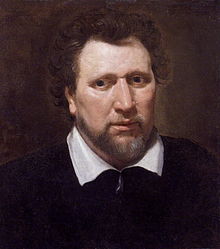
Ben Jonson
Hear me, O God!
A broken heart
Is my best part.
Use still thy rod,
.....

Ben Jonson
Philip Of Pokanoket - An Indian Memoir - Prose
As monumental bronze unchanged his look:
A soul that pity touch'd, but never shook;
Train'd from his tree-rock'd cradle to his bier,
The fierce extremes of good and ill to brook
.....
Washington Irving
As monumental bronze unchanged his look:
A soul that pity touch'd, but never shook;
Train'd from his tree-rock'd cradle to his bier,
The fierce extremes of good and ill to brook
.....
Washington Irving
Temora - Book Iii
ARGUMENT.
Morning coming on, Fingal, after a speech to his people, devolved the command on Gaul, the son of Morni; it being the custom of the times, that the king should not engage, till the necessity of affairs required his superior valor and conduct. The king and Ossian retire to the hill of Cormul, which overlooked the field of battle. The bards sing the war-song. The general conflict is described. Gaul, the son of Morni, distinguishes himself; kills Tur-lathon, chief of Moruth, and other chiefs of lesser name. On the other hand, Foldath, who commanded the Irish army (for Cathmor, after the example of Fingal, kept himself from battle,) fights gallantly; kills Connal, chief of Dun-lora, and advances to engage Gaul himself. Gaul, in the mean time, being wounded in the hand, by a random arrow, is covered by Fillan the son of Fingal, who performs prodigies of valor. Night comes on. The horn of Fingal recalls his army. The bards meet them with a congratulatory song, in which the praises of Gaul and Fillan are particularly celebrated. The chiefs sit down at a feast; Fingal misses Connal. The episode of Connal and Duth-caron is introduced; which throws further light on the ancient history of Ireland. Carril is despatched to raise the tomb of Connal. The action of this book takes up the second day from the opening of the poem.
.....
James Macpherson
ARGUMENT.
Morning coming on, Fingal, after a speech to his people, devolved the command on Gaul, the son of Morni; it being the custom of the times, that the king should not engage, till the necessity of affairs required his superior valor and conduct. The king and Ossian retire to the hill of Cormul, which overlooked the field of battle. The bards sing the war-song. The general conflict is described. Gaul, the son of Morni, distinguishes himself; kills Tur-lathon, chief of Moruth, and other chiefs of lesser name. On the other hand, Foldath, who commanded the Irish army (for Cathmor, after the example of Fingal, kept himself from battle,) fights gallantly; kills Connal, chief of Dun-lora, and advances to engage Gaul himself. Gaul, in the mean time, being wounded in the hand, by a random arrow, is covered by Fillan the son of Fingal, who performs prodigies of valor. Night comes on. The horn of Fingal recalls his army. The bards meet them with a congratulatory song, in which the praises of Gaul and Fillan are particularly celebrated. The chiefs sit down at a feast; Fingal misses Connal. The episode of Connal and Duth-caron is introduced; which throws further light on the ancient history of Ireland. Carril is despatched to raise the tomb of Connal. The action of this book takes up the second day from the opening of the poem.
.....
James Macpherson
Fingal - Book I
ARGUMENT.
Cuthullin (general of the Irish tribes, in the minority of Cormac, king of Ireland) sitting alone beneath a tree, at the gate of Tura, a castle of Ulster (the other chiefs having gone on a hunting party to Cromla, a neighboring hill,) is informed of the landing of Swaran, king of Lochlin, by Moran, the son of Fithil, one of his scouts. He convenes the chiefs; a council is held, and disputes run high about giving battle to the enemy. Connal, the petty king of Togorma, and an intimate friend of Cuthullin, was for retreating, till Fingal, king of those Caledonians who inhabited the north-west coast of Scotland, whose aid had been previously solicited, should arrive; but Calmar, the son of Matha, lord of Lara, a country in Connaught, was for engaging the enemy immediately. Cuthullin, of himself willing to fight, went into the opinion of Calmar. Marching towards the enemy, he missed three of his bravest heroes, Fergus, Duchômar, and Cáthba. Fergus arriving, tells Cuthullin of the death of the two other chiefs: which introduces the affecting episode of Morna, the daughter of Cormac. The army of Cuthullin is descried at a distance by Swaran, who sent the son of Arno to observe the motions of the enemy, while he himself ranged his forces in order of battle. The son of Arno returning to Swaran, describes to him Cuthullin's chariot, and the terrible appearance of that hero. The armies engage, but night coming on, leaves the victory undecided. Cuthullin, according to the hospitality of the times, sends to Swaran a formal invitation to a feast, by his bard Carril, the son of Kinfena. Swaran refuses to come. Carril relates to Cuthullin the story of Grudar and Brassolis. A party, by Connal's advice, is sent to observe the enemy; which closes the action of the first day.
.....
James Macpherson
ARGUMENT.
Cuthullin (general of the Irish tribes, in the minority of Cormac, king of Ireland) sitting alone beneath a tree, at the gate of Tura, a castle of Ulster (the other chiefs having gone on a hunting party to Cromla, a neighboring hill,) is informed of the landing of Swaran, king of Lochlin, by Moran, the son of Fithil, one of his scouts. He convenes the chiefs; a council is held, and disputes run high about giving battle to the enemy. Connal, the petty king of Togorma, and an intimate friend of Cuthullin, was for retreating, till Fingal, king of those Caledonians who inhabited the north-west coast of Scotland, whose aid had been previously solicited, should arrive; but Calmar, the son of Matha, lord of Lara, a country in Connaught, was for engaging the enemy immediately. Cuthullin, of himself willing to fight, went into the opinion of Calmar. Marching towards the enemy, he missed three of his bravest heroes, Fergus, Duchômar, and Cáthba. Fergus arriving, tells Cuthullin of the death of the two other chiefs: which introduces the affecting episode of Morna, the daughter of Cormac. The army of Cuthullin is descried at a distance by Swaran, who sent the son of Arno to observe the motions of the enemy, while he himself ranged his forces in order of battle. The son of Arno returning to Swaran, describes to him Cuthullin's chariot, and the terrible appearance of that hero. The armies engage, but night coming on, leaves the victory undecided. Cuthullin, according to the hospitality of the times, sends to Swaran a formal invitation to a feast, by his bard Carril, the son of Kinfena. Swaran refuses to come. Carril relates to Cuthullin the story of Grudar and Brassolis. A party, by Connal's advice, is sent to observe the enemy; which closes the action of the first day.
.....
James Macpherson
Three Faces
I.--VENTIMIGLIA
The sky and sea glared hard and bright and blank:
Down the one steep street, with slow steps firm and free,
.....

Algernon Charles Swinburne
I.--VENTIMIGLIA
The sky and sea glared hard and bright and blank:
Down the one steep street, with slow steps firm and free,
.....

Algernon Charles Swinburne
The Conqueror-s Grave
WITHIN this lowly grave a Conqueror lies,
And yet the monument proclaims it not,
Nor round the sleeperâ??s name hath chisel wrought
The emblems of a fame that never dies,â??
.....
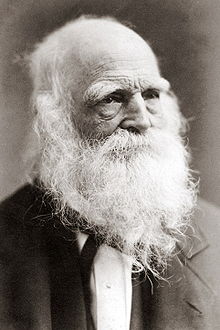
William Cullen Bryant
WITHIN this lowly grave a Conqueror lies,
And yet the monument proclaims it not,
Nor round the sleeperâ??s name hath chisel wrought
The emblems of a fame that never dies,â??
.....

William Cullen Bryant
The Vision
I remember a marvellous instant,
Unto me bending down from above,
Thy radiant vision appearing
As an angel of beauty and love.
.....
Alexander Sergeyevich Pushkin
I remember a marvellous instant,
Unto me bending down from above,
Thy radiant vision appearing
As an angel of beauty and love.
.....
Alexander Sergeyevich Pushkin
Sonnets From The Portuguese Xxvi
I lived with visions for my company
Instead of men and women, years ago,
And found them gentle mates, nor thought to know
A sweeter music than they played to me.
.....

Elizabeth Barrett Browning
I lived with visions for my company
Instead of men and women, years ago,
And found them gentle mates, nor thought to know
A sweeter music than they played to me.
.....

Elizabeth Barrett Browning
Tristram Of Lyonesse - Ii - The Queen's Pleasance
Out of the night arose the second day,
And saw the ship's bows break the shoreward spray.
As the sun's boat of gold and fire began
To sail the sea of heaven unsailed of man,
.....

Algernon Charles Swinburne
Out of the night arose the second day,
And saw the ship's bows break the shoreward spray.
As the sun's boat of gold and fire began
To sail the sea of heaven unsailed of man,
.....

Algernon Charles Swinburne
Thalassius
Upon the flowery forefront of the year,
One wandering by the grey-green April sea
Found on a reach of shingle and shallower sand
Inlaid with starrier glimmering jewellery
.....

Algernon Charles Swinburne
Upon the flowery forefront of the year,
One wandering by the grey-green April sea
Found on a reach of shingle and shallower sand
Inlaid with starrier glimmering jewellery
.....

Algernon Charles Swinburne
Three Faces Ii. Genoa
Again the same strange might of eyes, that saw
In heaven and earth nought fairer, overcame
My sight with rapture of reiterate awe,
Again the same.
.....

Algernon Charles Swinburne
Again the same strange might of eyes, that saw
In heaven and earth nought fairer, overcame
My sight with rapture of reiterate awe,
Again the same.
.....

Algernon Charles Swinburne
Paradise Regained - The First Book
I who e're while the happy Garden sung,
By one mans disobedience lost, now sing
Recover'd Paradise to all mankind,
By one mans firm obedience fully tri'd
.....

John Milton
I who e're while the happy Garden sung,
By one mans disobedience lost, now sing
Recover'd Paradise to all mankind,
By one mans firm obedience fully tri'd
.....

John Milton
Cathlin Of Clutha
An address to Malvina, the daughter of Toscar. The poet relates the arrival of Cathlin in Selma, to solicit aid against Duth-carmor of Cluba, who had killed Cathmol for the sake of his daughter Lanul. Fingal declining to make a choice among his heroes, who were all claiming the command of the expedition, they retired "each to his hill of ghosts," to be determined by dreams. The spirit of Trenmor appears to Ossian and Oscar. They sail from the bay of Carmona, and on the fourth day, appear off the valley of Rath-col, in Inis-huna, where Duth-carmor had fixed his residence. Ossian despatches a bard to Duth-carmor to demand battle. Night comes on. The distress of Cathlin of Clutha. Ossian devolves the command on Oscar, who, according to the custom of the kings of Morven, before battle, retired to a neighboring hill. Upon the coming on of day, the battle joins. Oscar carries the mail and helmet of Duth-carmor to Cathlin, who had retired from the field. Cathlin is discovered to be the daughter of Cathmol in disguise, who had been carried off by force by, and had made her escape from, Duth-carmor.
.....
James Macpherson
An address to Malvina, the daughter of Toscar. The poet relates the arrival of Cathlin in Selma, to solicit aid against Duth-carmor of Cluba, who had killed Cathmol for the sake of his daughter Lanul. Fingal declining to make a choice among his heroes, who were all claiming the command of the expedition, they retired "each to his hill of ghosts," to be determined by dreams. The spirit of Trenmor appears to Ossian and Oscar. They sail from the bay of Carmona, and on the fourth day, appear off the valley of Rath-col, in Inis-huna, where Duth-carmor had fixed his residence. Ossian despatches a bard to Duth-carmor to demand battle. Night comes on. The distress of Cathlin of Clutha. Ossian devolves the command on Oscar, who, according to the custom of the kings of Morven, before battle, retired to a neighboring hill. Upon the coming on of day, the battle joins. Oscar carries the mail and helmet of Duth-carmor to Cathlin, who had retired from the field. Cathlin is discovered to be the daughter of Cathmol in disguise, who had been carried off by force by, and had made her escape from, Duth-carmor.
.....
James Macpherson
The Two Elizabeths
Read at the unveiling of the bust of Elizabeth Fry at the Friends'
School, Providence, R. I.
A. D. 1209.
.....
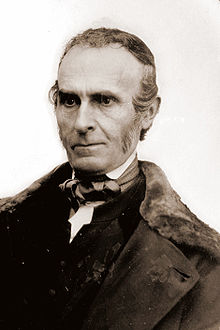
John Greenleaf Whittier
Read at the unveiling of the bust of Elizabeth Fry at the Friends'
School, Providence, R. I.
A. D. 1209.
.....

John Greenleaf Whittier
On Sr Charles Porter The Chancellours Death
& tis too true alass! we find, he's gonn,
Virtue from earth a second time is flown,
She onely then with her two sisters flew,
But now since he, what ere were good withdrew;
.....
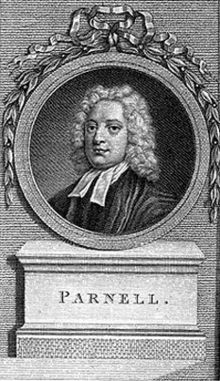
Thomas Parnell
& tis too true alass! we find, he's gonn,
Virtue from earth a second time is flown,
She onely then with her two sisters flew,
But now since he, what ere were good withdrew;
.....

Thomas Parnell
Gunnar's Howe Above The House At Lithend
Ye who have come oâ??er the sea
to behold this grey minster of lands,
Whose floor is the tomb of time past,
and whose walls by the toil of dead hands
.....
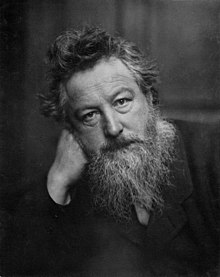
William Morris
Ye who have come oâ??er the sea
to behold this grey minster of lands,
Whose floor is the tomb of time past,
and whose walls by the toil of dead hands
.....

William Morris
Prisoner
`Prisoner, tell me, who was it that bound you?'
`It was my master,' said the prisoner.
`I thought I could outdo everybody in the world in wealth and power,
.....
Rabindranath Tagore
`Prisoner, tell me, who was it that bound you?'
`It was my master,' said the prisoner.
`I thought I could outdo everybody in the world in wealth and power,
.....
Rabindranath Tagore
Little Popeet - The Lost Child
Near by the silent waters of the Mediterranean,
And at the door of an old hut stood a coloured man,
Whose dress was oriental in style and poor with wear,
While adown his furrowed cheeks ran many a tear.
.....
William Topaz Mcgonagall
Near by the silent waters of the Mediterranean,
And at the door of an old hut stood a coloured man,
Whose dress was oriental in style and poor with wear,
While adown his furrowed cheeks ran many a tear.
.....
William Topaz Mcgonagall